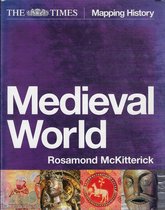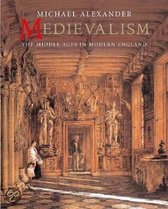Devil'S World Heresy and Society 1100-1300
Afbeeldingen
Sla de afbeeldingen overArtikel vergelijken
- Engels
- Paperback
- 9780582279605
- 03 augustus 2005
- 288 pagina's
Samenvatting
`Medieval Europe was a market-place whose principal commodity was religion. Because heresy meant choice, it was as subject to market forces as to the terrors of the devil or the Inquisition. Catharism was a lifestyle rather than a frightening secret society. This is the controversial argument sustained with great lucidity throughout this book. It is original, accessible and scholarly, as well as being an excellent guide to the most recent research.’
Michael Clanchy FBA, Emeritus Professor of Medieval History
Institute of Historical Research, University of London
'Issues of religious doctrine and beliefs are once more at the forefront of political and cultural conflicts around the world. Andrew Roach's interesting book can help us understand our modern world better, and should have a wide appeal to non-specialist readers'
Paul Ormerod, author of the best-selling Death of Economics and Butterfly Economics
`Here, in Andrew Roach's nuanced reconstruction, is a clear and objective analysis of the way the close relationship between social and economic change and religious dissent worked in real life, devoid of the ideological baggage which has so often distorted such interpretations in the past.’
Malcolm Barber, Professor of Medieval European History
University of Reading
In his fascinating new study, Andrew Roach places the rise and fall of the heresies of the central middle ages in their broader context. He argues that the emergence of heresy in the twelfth century reflected lay impatience with the monopoly of the medieval Church. Unprecedented consumer choice in food, clothing and less tangible products such as troubadour entertainment and higher education meant that people looked at religion in a new light. Not only did they expect to be cared for in this life and the next, but they also hoped to enhance their wealth and social standing through their involvement in religious organisations. Consequently, they turned to informal groups such as the Cathars and Waldensians who were there at pivotal moments in their lives and offered them simple theology, explained through preaching.
`Heresy’ literally means choice, and medieval heresy saw the birth of the modern consumer. For a brief period in the early thirteenth century there was more choice in religion in Western Europe than at any period before the Reformation. Only a combination of systematic persecution of heresy through inquisitors and a change in lay taste brought this to an end.
Andrew P. Roachis a Lecturer in History at the Universityof Glasgow.
Productspecificaties
Inhoud
- Taal
- en
- Bindwijze
- Paperback
- Oorspronkelijke releasedatum
- 03 augustus 2005
- Aantal pagina's
- 288
- Illustraties
- Nee
Betrokkenen
- Hoofdauteur
- Andrew Roach
- Hoofduitgeverij
- ROUQ
Overige kenmerken
- Editie
- 1
- Extra groot lettertype
- Nee
- Product breedte
- 156 mm
- Product hoogte
- 10 mm
- Product lengte
- 234 mm
- Studieboek
- Nee
- Verpakking breedte
- 157 mm
- Verpakking hoogte
- 235 mm
- Verpakking lengte
- 19 mm
- Verpakkingsgewicht
- 449 g
EAN
- EAN
- 9780582279605
Je vindt dit artikel in
- Taal
- Engels
- Boek, ebook of luisterboek?
- Boek
- Studieboek of algemeen
- Algemene boeken
Kies gewenste uitvoering
Prijsinformatie en bestellen
Rapporteer dit artikel
Je wilt melding doen van illegale inhoud over dit artikel:
- Ik wil melding doen als klant
- Ik wil melding doen als autoriteit of trusted flagger
- Ik wil melding doen als partner
- Ik wil melding doen als merkhouder
Geen klant, autoriteit, trusted flagger, merkhouder of partner? Gebruik dan onderstaande link om melding te doen.








